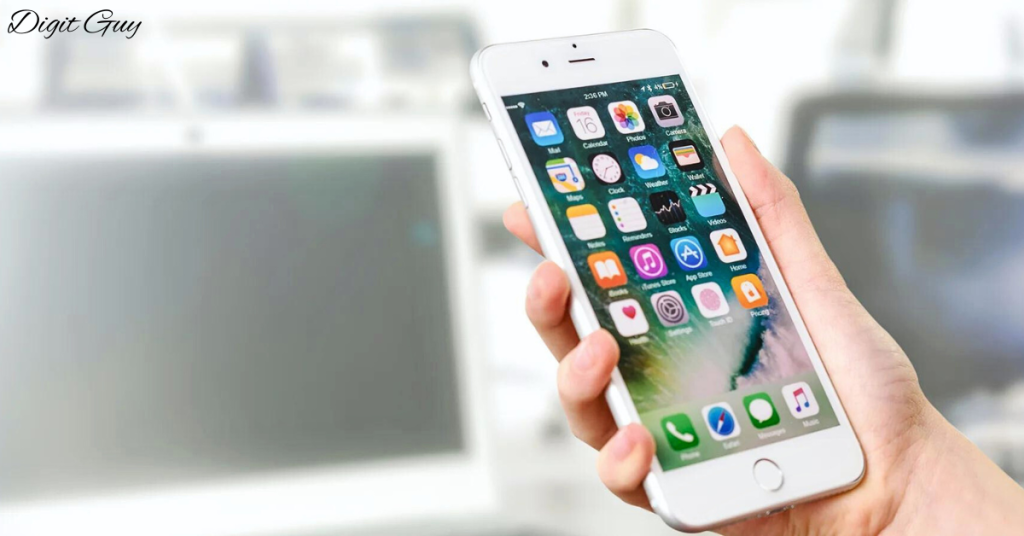Smartphones are now essential in modern life, revolutionizing our communication, work, and entertainment. These versatile devices offer a plethora of benefits, but they also come with certain drawbacks.
This article explores both the advantages and disadvantages of smartphones, providing a comprehensive overview of their impact on our daily lives.
Advantages of Smartphones
Connectivity and Communication
One of the primary benefits of smartphones is their ability to keep us connected. With smartphones, instant communication is possible through various channels such as calls, texts, and messaging apps like WhatsApp and Facebook Messenger. Video calling features further enhance communication by allowing face-to-face interactions regardless of distance.
This global connectivity has made it easier to maintain personal relationships and collaborate professionally.
Access to Information
Smartphones have revolutionized access to information. With internet connectivity, users can browse the web, read the news, and access educational resources anytime, anywhere. This constant access to information facilitates continuous learning and staying updated with the latest developments worldwide.
Educational apps make learning more interactive and accessible, contributing significantly to personal and professional growth.
Productivity Tools

Smartphones are equipped with numerous productivity tools that help organize daily activities. Calendar apps and schedulers ensure that users keep track of important dates and appointments. Note-taking apps and task managers like Evernote and Todoist enhance efficiency by allowing users to jot down ideas and manage tasks on the go.
Additionally, work-related applications, including email clients and document editors, enable professionals to stay productive outside the office.
Entertainment
For entertainment, smartphones offer a wide range of options. They support music streaming, video playback, and gaming, providing endless entertainment possibilities. Services like Netflix, Spotify, and various gaming apps ensure that users have access to their favorite content wherever they are.
Social media platforms also play a significant role in entertainment, allowing users to engage with content and stay connected with friends and family.
Navigation and Travel
Smartphones have made travel more manageable and convenient. GPS and mapping apps like Google Maps provide reliable navigation, helping users find their way in unfamiliar places. Travel apps facilitate booking flights, hotels, and rideshare services, streamlining the travel planning process.
Moreover, language translation apps assist travelers in overcoming language barriers, making international travel more accessible.
Health and Fitness
Smartphones contribute to health and fitness through built-in sensors and various health apps. Fitness trackers monitor physical activities, heart rate, and other health metrics, encouraging users to maintain a healthy lifestyle. Health apps offer features like diet planning, exercise routines, and telemedicine services, allowing users to consult with healthcare professionals remotely.
Photography and Videography
Modern smartphones come equipped with high-quality cameras that rival dedicated cameras. These advanced cameras enable users to capture stunning photos and videos effortlessly. Built-in editing tools and third-party apps provide options for enhancing and editing images.
Sharing these creations on social media platforms is seamless, allowing users to showcase their photography skills.
Financial Transactions
Smartphones have revolutionized the way we handle financial transactions. Mobile banking apps make it easy to manage bank accounts, transfer money, and pay bills. Payment services like Apple Pay and Google Wallet enable secure, contactless payments, reducing the need for cash. Budgeting apps help users track expenses and manage their finances effectively.
Disadvantages of Smartphones

Health Concerns
Despite their benefits, smartphones can pose health risks. Prolonged screen time can lead to eye strain and discomfort, while the blue light emitted by screens can disrupt sleep patterns. There are also concerns about the potential health effects of prolonged exposure to smartphone radiation, though research in this area is ongoing.
Privacy and Security
Privacy and security are significant concerns with smartphone use. Personal information can be compromised by data breaches and cyberattacks. Additionally, the potential for location tracking and unauthorized surveillance poses privacy risks. Targeted advertising based on personal data can also feel invasive, raising concerns about data privacy.
Social Impact
The social impact of smartphones is a double-edged sword. While they facilitate communication, overreliance on smartphones can reduce face-to-face interactions. This can lead to digital addiction, where individuals spend excessive time on their devices, potentially leading to social isolation and loneliness. Balancing digital and real-world interactions is crucial to mitigate these effects.
Distraction and Productivity
Smartphones can be significant sources of distraction. Constant notifications from apps and messages can interrupt focus, making it challenging to stay productive. The tendency to multitask on smartphones can also lead to decreased efficiency. Furthermore, easy access to entertainment and social media can result in procrastination, affecting productivity.
Cost and Economic Factors

The financial aspect of owning a smartphone can be burdensome. High purchase costs, frequent upgrades, and the expense of data plans and subscriptions add up over time. Keeping up with the latest models can be financially draining, and the pressure to stay updated can lead to unnecessary spending.
Environmental Impact
Smartphones contribute to environmental issues such as electronic waste (e-waste). The disposal of old devices and the constant demand for new models create significant e-waste. Additionally, the production of smartphones requires considerable natural resources and energy, contributing to environmental pollution and resource depletion.
Conclusion
Smartphones have undoubtedly transformed our lives, offering unparalleled convenience and connectivity. However, it is essential to be mindful of their disadvantages and use them responsibly.
By understanding the pros and cons, we can make informed decisions about smartphone usage, balancing the benefits with potential drawbacks to maximize their positive impact on our lives.
Frequently Asked Questions
What are the main benefits of smartphones?
Smartphones offer numerous benefits, including enhanced connectivity and communication, easy access to information, productivity tools, entertainment options, reliable navigation and travel apps, health and fitness tracking, high-quality photography and videography, and convenient financial transactions.
How do smartphones affect our health?
While smartphones provide many conveniences, they can also impact our health negatively. Prolonged screen time can cause eye strain and discomfort, and blue light from screens can disrupt sleep patterns. There are also concerns about potential radiation exposure from long-term smartphone use.
Are smartphones a security risk?
Smartphones can pose security risks if not properly managed. Data breaches and cyberattacks can compromise personal information. Location tracking and unauthorized surveillance are additional privacy concerns. It is essential to use strong passwords, enable two-factor authentication, and be cautious about app permissions to mitigate these risks.
Can smartphones cause social isolation?
Excessive smartphone use can lead to social isolation by reducing face-to-face interactions. People may become more engrossed in their digital lives, neglecting real-world relationships. It is important to balance smartphone use with in-person social activities to maintain healthy relationships.
How do smartphones impact productivity?
Smartphones can both enhance and hinder productivity. They offer numerous productivity tools, such as calendars, note-taking apps, and email clients, which can improve efficiency. However, constant notifications and easy access to entertainment and social media can be distracting and lead to procrastination.
What are the environmental impacts of smartphones?
The production and disposal of smartphones contribute to environmental pollution and resource depletion. E-waste from discarded devices is a significant issue, and manufacturing smartphones requires substantial natural resources and energy. Sustainable practices, such as recycling old devices and reducing frequent upgrades, can help mitigate these impacts.
